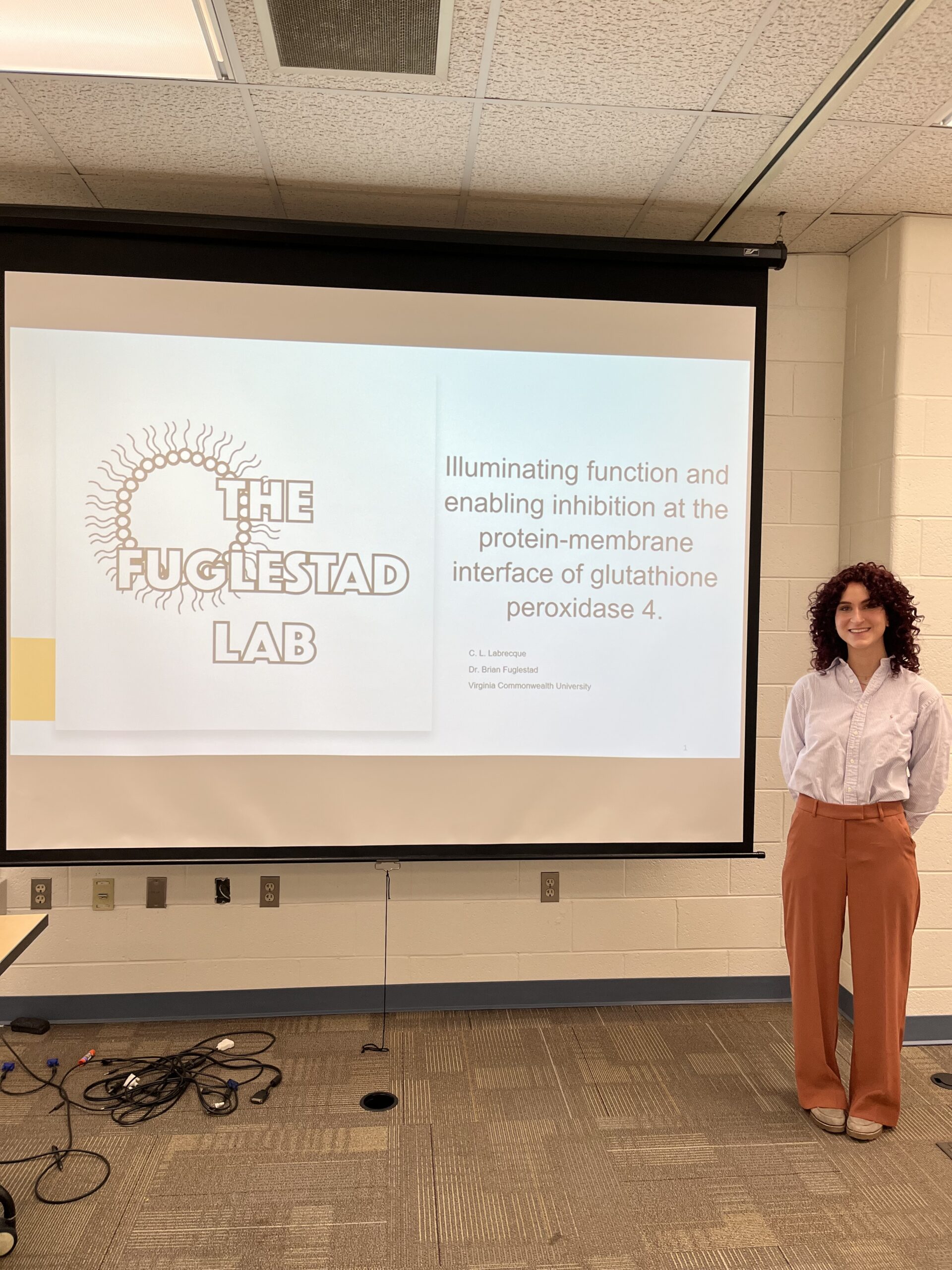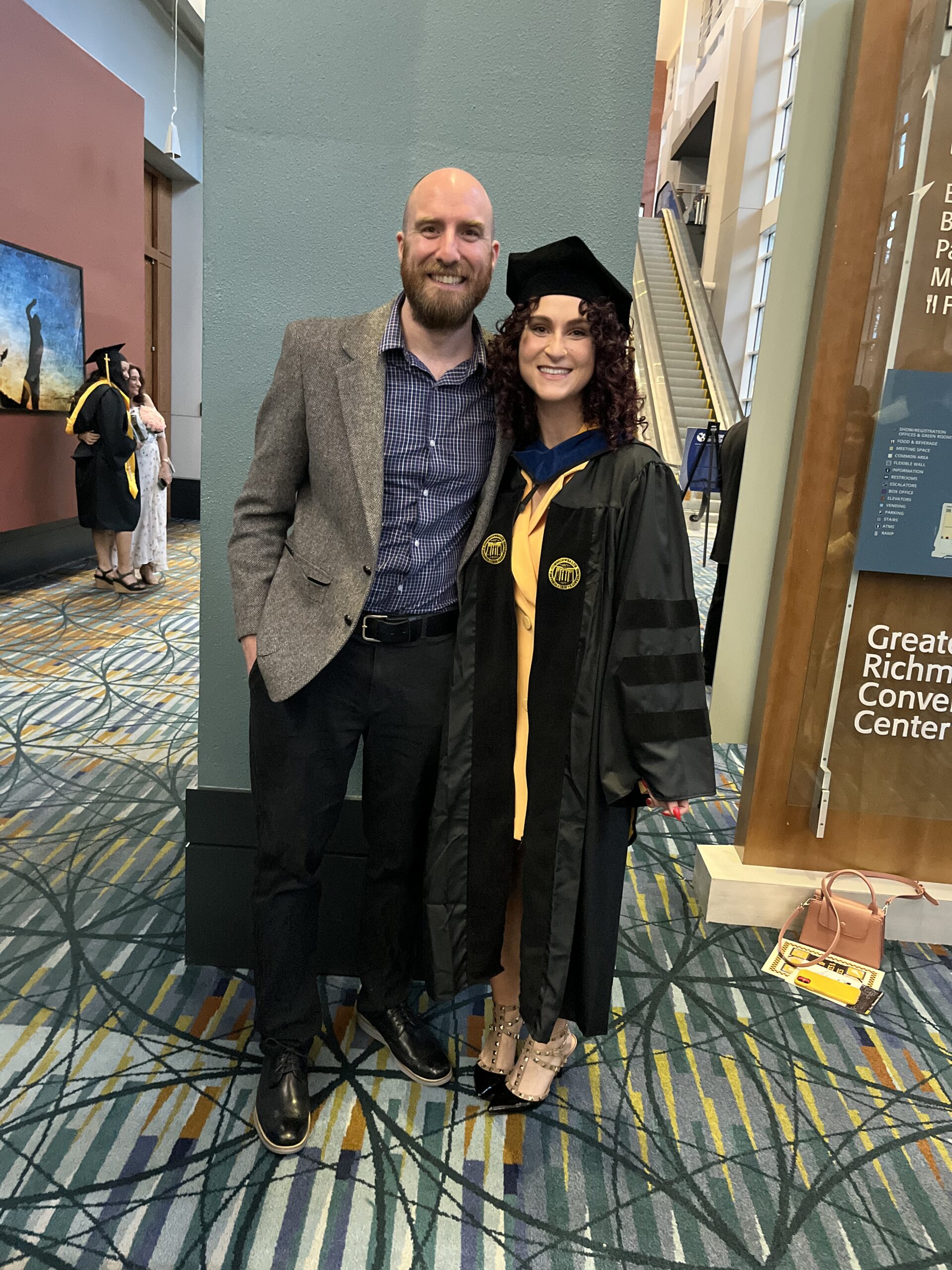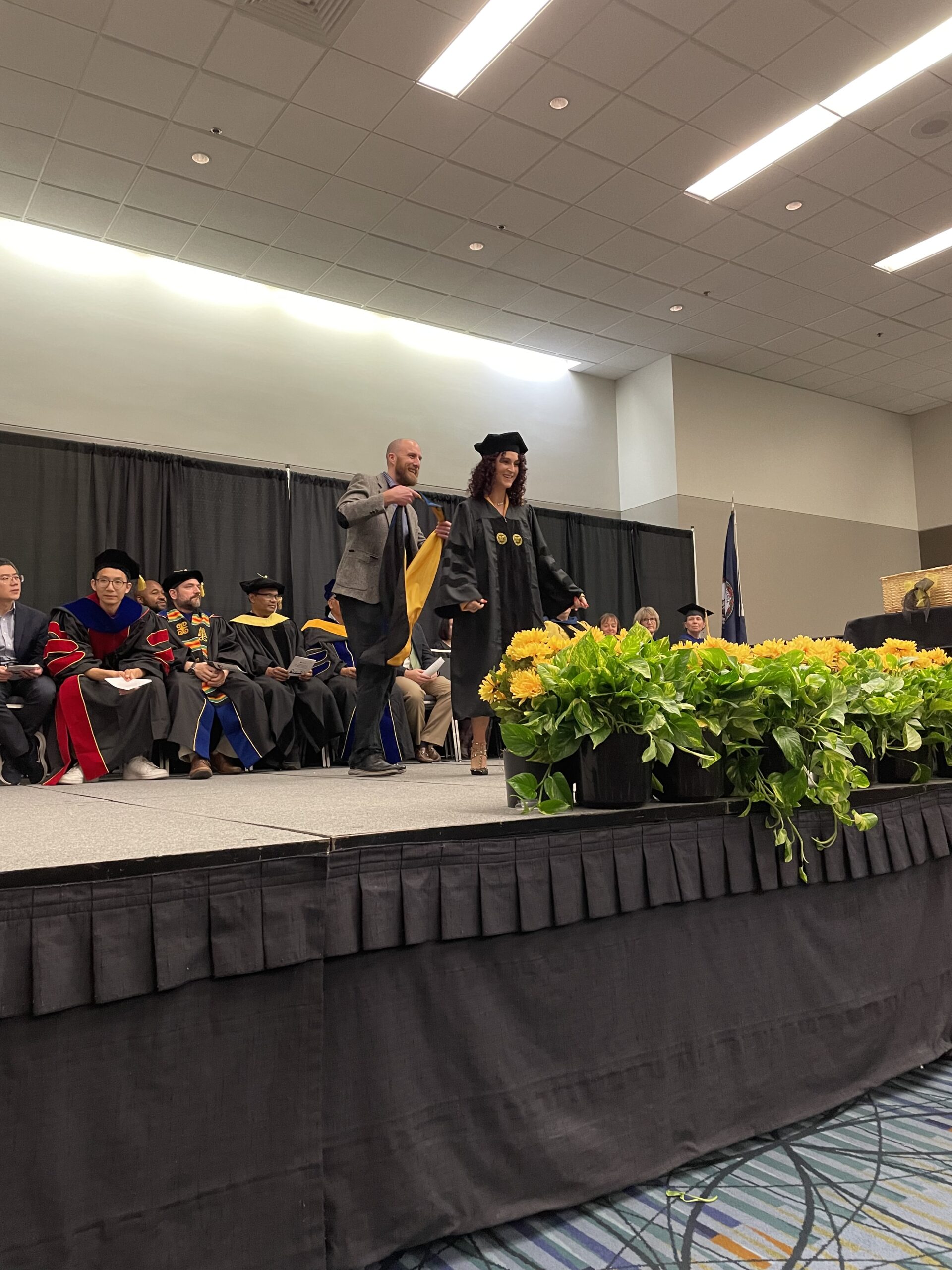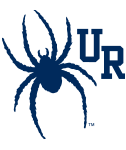I love hearing about what all the UR alumni are up to, but my favorite announcements are when my former research students do something incredible – especially when they earn a Ph.D. Earlier this spring, I got to see Courtney Labrecque’s (BMB ’19) public seminar at Virginia Commonwealth and then later in the summer, she defended her dissertation and earned a doctorate in chemical biology. Now she had moved across the country for a postdoc at UCLA. I am so proud of what she accomplished at UR (two publications with the Pollock lab, plus waaay too many 384-well plate assays screening for MEMO1 inhibitors) and what she accomplished at VCU (helping establish a new lab, working through a pandemic to solve her first NMR protein structure, and developing new methods for screening membrane proteins). I can’t wait to see what she does in the future! I asked if she would reflect on how UR prepared her for her graduate work so let’s look at some pictures and hear from her. Congratulations, Dr. Labrecque – you are amazing!



If you were to ask me the proudest moment of my life a couple years ago, I would have easily been able to say graduating from the University of Richmond in May of 2019 and starting my PhD at Virginia Commonwealth University that August. Also, if you were to ask me about the most terrifying time of my life, I would have said the same thing. Like many of my classmates who were also biochemistry and molecular biology majors at UR, I was seeking to continue my education, but navigating the applications, interviews, visits, and of course all the emotional up and downs was daunting. I was incredibly fortunate enough to have the most amazing mentor in Dr. Pollock who easily believed in me more than I believed in myself during this time. However, with her support and guidance I was accepted to programs and I decided to stay in the area and start at VCU.
I quickly fell in love with the lab I would join under Dr. Brian Fuglestad, who also proved to be an amazing mentor. However, like I think most graduate students, I felt like I was hiding among a group of incredibly accomplished students and scientists, and I questioned whether I was good enough to earn my PhD. I doubted whether I knew what I was talking about as I was learning new techniques, like protein NMR and x-ray crystallography, but I was overlooking what I did know. This continued in waves for my first two and a half years, and no number of quantifiable achievements seemed to make it dissipate. This seemingly came to a head while preparing for my candidacy exam. At the time of the exam, I had one published manuscript and had just submitted a second one for review. I had already attended conferences to present my work and had cleared every benchmark to pass my candidacy exam, but the imposter syndrome would not go away. However, I stopped seeing this as a negative after a conversation I had with Dr. Fuglestad where he told me the moment I don’t have imposter syndrome means I know longer care about my work or my ability to learn. That has stuck with me for the remainder of my time at VCU and into my postdoctoral fellowship at UCLA.
It is incredibly easy to continue to look forward and numerate the things you do not know, but have you ever turned around to realize how far you have come? I learned from Dr. Pollock how to grow, express, and purify proteins. This on its own helped me so much starting graduate school because I did not have to start from square one on my project. I knew from my time in her lab at UR how to run different assays that I was able to bring to my new, young lab at VCU, including how to start up and maintain a cell culture lab. From Dr. Fuglestad I learned how to prepare proteins for NMR, create different membrane models to study protein binding, and even develop our lab’s very own model systems. Most importantly, from both of my incredible mentors I learned how to think critically about my work and in equal parts not only question my knowledge and understanding but still believe in myself. My PhD was by no means a walk in the park, but I am a much better, and more confident, scientist and person for having completed it.
Some advice for other recent or soon to be UR graduates who want to attend graduate school (because it may have helped if a peer was able to tell me this): you are so incredibly capable of succeeding in graduate school. Being in a lab and researching at UR is the best experience to prepare for graduate school hands down. You already have a leg up, even if it does not feel that way in the beginning. While to me it will never be a bad thing to check in and question myself, just remember while doing so that you are still in an amazing position.
I find myself again in a new lab with a new PI, Dr. Jihane Benhammou, who has been incredible to learn from. I have transitioned to more translational research where almost every day I am learning a new concept, technique, or system. I know without a doubt Courtney from 2019 would never have been brave enough to apply for the position, but with my incredible support system in my previous mentors, I can now amend the proudest moment of my life.
-Courtney Labrecque (B.S. in BMB from UR ’19, Ph.D in chemical biology from VCU ’24)

Recent Comments